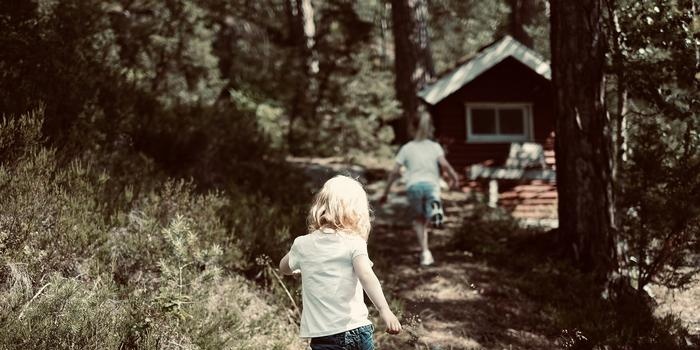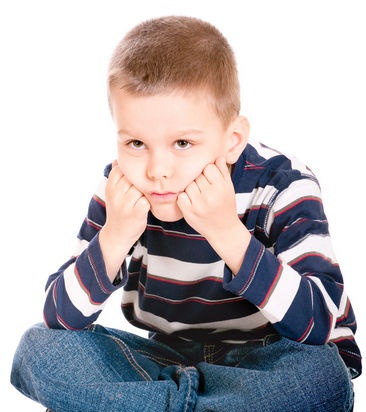Defeat the evil in yourself |
|
Probably, the main thing for this is to try, at least for a minute, to imagine yourself in the place of the one whom we offend, offend, at whom we laugh. Why don't we feel the pain of those we laugh at? Why, having become adults, parents, we so rarely try to imagine ourselves in the place of a reprimanded son or daughter? To understand, for example, that a deuce could be caused by ignorance and the best antidote here is to help in learning, and not to scold. Or maybe it’s a matter of poor health - reprimand and punishment at home will only aggravate it. Often, educational failures, conflicts are a signal that our child, even, perhaps, already a large child, lives very badly in his microcosm, in a collective of peers, in the yard, and his true trouble is ripening there. And we are reliably shielded from her by the sense of our righteousness, the right of the strong in this situation. And we do not understand, we do not even strive to understand how bad our child is, how he needs our help, our support, how harmful our self-confident reprimand is for him ... And in everyday life, each of us many times a day acts as someone's offender , even if involuntarily, and endlessly passes by such cases, considering it good not to interfere - with this indifference we give them "good". Without hesitation, we also, although it seems that we are not involved, offend and humiliate the person who is currently suffering undeservedly, support his offender, multiply the common evil.
Week later. Young people were accustomed to the woman's affable tone, they felt they liked the respect for themselves. And one day my friend seized the moment and, after greeting the guys, as usual, put the bags on the bench and said: "Well, why are you guys so nice, you look good, but curse and swear?" And in this spirit - affectionately, convincingly, as if she did not believe that they were capable of anything bad, I spoke with young people for a long time. I even managed to talk about the fact that they offend others with their behavior. And a strange thing - the guys listened to her in silence, even looking down! It became uncomfortable. Since then they have been replaced. What helped the young people? Yes, only the kind attitude of a stranger. A kind of advance of the belief that they simply cannot be bad. Everyone knows for himself: when you are treated with respect, your desire to be good doubles, even tenfolds. From time immemorial, politeness, culture, kindness have been the best means against rudeness and lack of culture.
A good deed gave its own chain reaction. It seemed that all these people in those minutes themselves became a little kinder. A kind, normal, albeit elementary act of a woman, perhaps the very way of her life, a little revealed to people, aroused in others the most beneficial desire to be better, kinder themselves. Today we all look at our past with horror and disbelief. We understand that not only did we live badly, but we were, as it were, historically subjected to moral deformation. This is a bitter and terrible realization. It is somewhat consoling that they are saying all around: we are not just bad in ourselves, we are a natural product of the socio-political, historical conditions in which we lived. This has already been scientifically proven, as they say. It's nice to realize that you are not at all to blame for your moral inferiority, but that someone and something made you so. But something else is wrong here: to expect that someone or something in the same way, on a "global scale", will correct this situation, again make us all good and humane. Of course, this can happen, but ... only after tens of years. "Good" then will no longer be us, but our great-grandchildren, if not great-great-grandchildren.
Now at every step they quote Chekhov's words about how difficult it is to squeeze a slave out of oneself. This is also our "devilish beginning." It is very difficult and very easy to defeat the sinister in yourself at the same time. If, of course, you set such a goal. Just learning how to put yourself in the shoes of the one who suffers, perhaps through your own fault. This is one of the real ways to follow the wise biblical commandment: help your neighbor. And a good seed, carefully cultivated, gives a good sprout. Our own kindness encourages others to be more human. Such a position, by the way, is morally beneficial, because your evil deed, sometime evil, will return to you, and your kindness will certainly return to you with human kindness. A. Belenkaya Similar publications |
| Two sides of the same coin |
|---|
New recipes
 Do we often think about why it is sometimes so easy and simple for us to offend, offend a person standing next to us? To offend the closest person? Why don't we do the most elementary thing in such cases - don't we try to imagine ourselves in its place? Then harsh words would surely slow down in us, our own evil deeds would retreat. What prevents each of us from “turning on” our good feelings at the right moment, the best that is in each of us?
Do we often think about why it is sometimes so easy and simple for us to offend, offend a person standing next to us? To offend the closest person? Why don't we do the most elementary thing in such cases - don't we try to imagine ourselves in its place? Then harsh words would surely slow down in us, our own evil deeds would retreat. What prevents each of us from “turning on” our good feelings at the right moment, the best that is in each of us? One friend of mine told me how every evening, returning home from work, she sees the same picture: young people are sitting on a bench near the entrance. They are beautifully dressed, modern, outwardly even intelligent. They smoke, they talk. Cigarette butts are thrown right where they sit. The conversation is sprinkled with mat "sparkles". If passers-by criticize them, young people only laugh and swear even more frankly. This woman decided to do this: she began to greet these young people. They answered, surprised and very kind. One, two, three. But right there, as soon as she disappeared in the entrance, they spat and used foul language again.
One friend of mine told me how every evening, returning home from work, she sees the same picture: young people are sitting on a bench near the entrance. They are beautifully dressed, modern, outwardly even intelligent. They smoke, they talk. Cigarette butts are thrown right where they sit. The conversation is sprinkled with mat "sparkles". If passers-by criticize them, young people only laugh and swear even more frankly. This woman decided to do this: she began to greet these young people. They answered, surprised and very kind. One, two, three. But right there, as soon as she disappeared in the entrance, they spat and used foul language again. And here is another case, which I myself witnessed. One summer I was traveling by train to my dacha. At one of the stops in Moscow, a very old man was sitting on a platform on a folding chair. Nearby was a middle-aged woman - as it turned out later, her daughter.A train approached, the crowd rushed to storm the doors - summer Saturdays, as you know, are difficult times. It seemed that the old man would simply be crushed. But the woman calmly helped him up and folded the chair. And she began to help get into the car. Maybe one of her looks, one caring attitude stopped people? It was striking that she not only held him under the elbow, but bent down, helped him to raise his apparently sore leg. I almost brought it into the carriage, although it was very heavy. Then she carefully sat down on the only free seat. She stood nearby, guarding from the onslaught of the crowd. For some reason, no one around was shouting, everyone was silent, looking a little surprised at this couple. The train started and moved on. And then people started talking. Here, they say, how nice it is when a daughter takes care of her father. “Now you don't see this often! - said someone nearby. "They spit on old people, they forget about them!" "They push around with a piece of bread, let alone care!" - responded nearby.
And here is another case, which I myself witnessed. One summer I was traveling by train to my dacha. At one of the stops in Moscow, a very old man was sitting on a platform on a folding chair. Nearby was a middle-aged woman - as it turned out later, her daughter.A train approached, the crowd rushed to storm the doors - summer Saturdays, as you know, are difficult times. It seemed that the old man would simply be crushed. But the woman calmly helped him up and folded the chair. And she began to help get into the car. Maybe one of her looks, one caring attitude stopped people? It was striking that she not only held him under the elbow, but bent down, helped him to raise his apparently sore leg. I almost brought it into the carriage, although it was very heavy. Then she carefully sat down on the only free seat. She stood nearby, guarding from the onslaught of the crowd. For some reason, no one around was shouting, everyone was silent, looking a little surprised at this couple. The train started and moved on. And then people started talking. Here, they say, how nice it is when a daughter takes care of her father. “Now you don't see this often! - said someone nearby. "They spit on old people, they forget about them!" "They push around with a piece of bread, let alone care!" - responded nearby. And the change in the current situation, the correction of our own moral deformation is in our own hands. In the old days they said: behind everyone there is a devil. After all, this law has the opposite meaning: it is in the power of each of us to cope with the evil that sits in us, lives, often rules the ball, controls our actions and way of life.
And the change in the current situation, the correction of our own moral deformation is in our own hands. In the old days they said: behind everyone there is a devil. After all, this law has the opposite meaning: it is in the power of each of us to cope with the evil that sits in us, lives, often rules the ball, controls our actions and way of life.









